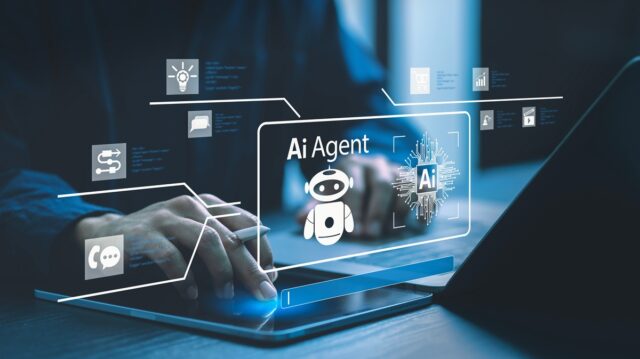November 18, 2025
Report Roundup: CX Vendors Cite Contextual Intelligence and Change Resistance as Key Trends for 2026

Tis the season for tech types, big brands and software planners to drag a crystal ball out and have a peek into their roadmap and conceptual futures. Personally, I wish they’d give it rest, so we could all have a quieter winter, but like most bandwagons, seasonal or otherwise, there’s no stopping them.
From cloud dwellers to product marketers, analysts to pundits, everyone wants to wave their “thought leadership” banner all over the place, so who are we to stop them? Hot on the heels of panic over superintelligence and the AI investment bubble about to burst, CX types seem far more prosaic and grounded in their approach to technological change at the sharp end. But what else is looming, as reports on CX trends, business research and customer experience feedback show.
Join the Contextual Intelligence Agency
First up is Zendesk, releasing its 2026 Customer Experience (CX) Trends report, with the focus on Contextual Intelligence. Software’s ability to combine AI, data, and human understanding in real time to redefine what great customer service means.
Tom Eggemeier, Chief Executive Officer of Zendesk suggests “AI is not the differentiator anymore. How intelligently you apply it is. When 85% of CX leaders say one unresolved issue is enough to lose a customer, speed, accuracy, and empathy become non-negotiable. The best systems connect past interactions to present intent to anticipate what is next, putting contextual intelligence in action. That is the balance Zendesk delivers: automation that feels personal and builds trust by bringing real context to every conversation.”
The Zendesk research is based on insights from thousands of consumers, CX leaders, and customer service agents globally. It highlights how the most successful companies are blending the capabilities of AI with the emotional intelligence of human service.
A Memory-Rich Future
Among the other features of the report, Memory-rich AI is seen as raising the bar for personalisation by carrying context across channels and time-recalling past behaviour, timing, and preferences to deliver continuous, relevant interactions. As these capabilities mature, 63% expect brands to tailor support based on prior interactions. High AI-maturity organisations are already capitalising on this, with 85% of CX leaders calling it critical to building truly personalised journeys.
Instant resolutions are becoming the baseline expectation, as AI and self-service accelerate consumer demand for fast, accurate support across all touchpoints. In the UK, 90% of CX leaders say customers will drop brands that cannot resolve issues on first contact, and 85% of consumers say responsiveness and accurate resolution highly influence their purchase decisions.
Finally, AI transparency has become a non-negotiable expectation, with consumers demanding clear explanations for automated decisions. Companies that embed transparent processes into AI workflows build trust and strengthen loyalty. 77% of consumers say plain-language reasoning is important, 91% expect an explanation for AI-made decisions, and 87% of CX leaders agree AI transparency will be required for any customer-facing AI within two years. High AI-maturity organisations are preparing for this, with 100% already having or planning AI reasoning controls.
Together, these trends and contextual intelligence will become the foundation for companies to deliver exceptional CX, differentiate in the market, and cultivate lasting customer relationships.
Qualtrics Chips In on AI’s Multiplier Impact for Market Research
Qualtrics own piece of research, The 4 Market Research Trends shaping 2026 focuses on how research agents can turn self-service into a multiplied impact. As AI agents unlock research-grade insights and make them accessible to everyone, ideas and data-led concepts can be explored faster.
Product managers can test concepts without submitting tickets. Marketing teams can analyse qualitative research findings without waiting for reports. Executives can explore customer data without going through intermediaries. And crucially, all by multiplying researchers’ impact across the organization – not their workload.
According to Qualtrics, researchers are seeing the shift with 13% now name democratizing insights as the single biggest benefit of using AI. And among those who value AI for that reason, 84% believe research agents will oversee more than half of research projects end-to-end within the next three years.
Other worthy mentions include, General-purpose AI is losing ground to specialized research platforms, Resistance to change is costing researchers their seat at the strategy table and Leaders optimize for AI adoption. Teams optimize for AI survival.
CSG Focuses on Meaningless Brand Conversations
The CSG 2026 State of the Customer Experience Report leads with the insight that seven out of ten consumers feel brands send so many messages, they don’t care what brands say anymore. And from a consumer perspective it can be hard to disagree. With wall-to-wall, seemingly generic communications, when was the last one that stood out to you?
“Consumer overwhelm isn’t just a feeling. It’s a business risk,” said Katie Costanzo, President of Customer Experience at CSG. “Your customers aren’t asking for more touchpoints. They want an easy, unified experience that shows the brand understands them. In 2026, the brands that can gain a holistic view of the customer and act in real time will win customers’ trust and loyalty. That work starts from within: break down data silos, embrace smart automations and analytics, and communicate across departments. That’s when brands will cut through the chaos with empathy, clarity and relevance.”
Remember that AI-supported personalization only works when it feels human. Lean on a journey analytics command centre to spot noisy, disjointed experiences in real time.
Harmonize the tech stack, don’t just consolidate it.
These and many other reports doing the rounds



